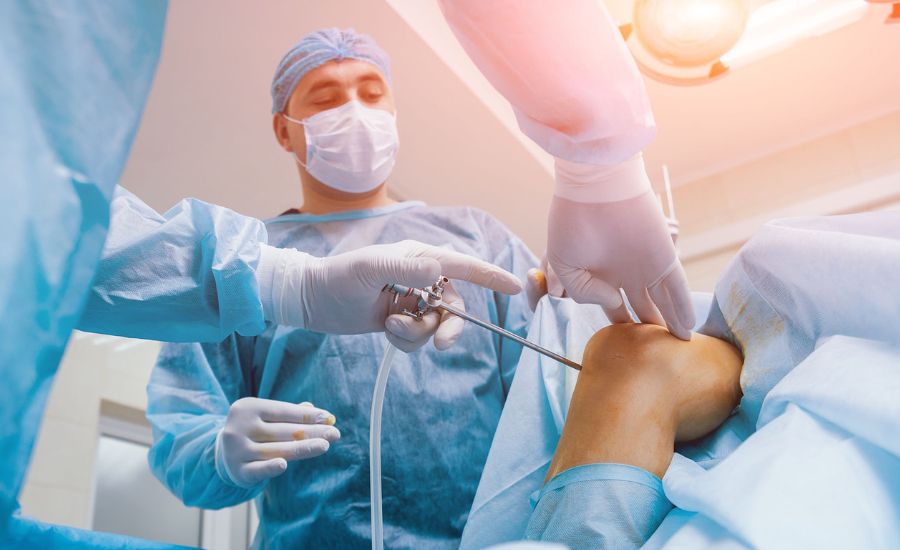An orthopedic surgeon specializes in treating injuries in the musculoskeletal system. The musculoskeletal system comprises the bones, tendons, ligaments, and joints. Here are ways in which orthopedic surgeons treat sports injuries:
Shoulder Service
Orthopedic surgeons provide treatments for acute or traumatic shoulder injuries. Their treatments resolve weakness, stiffness, numbness, and tingly sensations in the arms. Shoulder treatments are nonoperative or surgical, depending on individual circumstances. Surgeons offer revision shoulder replacement, superior capsular reconstruction, and physical therapy. A revision shoulder replacement involves removing your shoulder replacement and installing a new one. The superior capsular reconstruction procedure allows for arthroscopic graft placement.
Elbow Treatment
An orthopedic surgeon performs nerve conduction studies, X-rays, and MRIs to diagnose elbow pain. They provide nonoperative treatments like immobilization with a brace and injections to reduce inflammation. Their reparative therapies include lipoaspirate mesenchymal stromal cell therapy and platelet-rich plasma injections. Reparative medicine treatments augment surgical treatments to improve healing. Surgical procedures like arthroscopy and endoscopic cubital tunnel release help resolve internal joint problems. During joint replacements, surgeons place internal joint hinges and other devices in your elbow.
Wrist Treatment
Surgeons treat wrist injuries through physical therapy, bracing, compression, and anti-inflammatory injections. They perform diagnostic exams to diagnose the cause of the wrist pain. Examinations involve an inquiry about your symptoms and physical activity. Feeling your wrists and hands allows them to check for signs of fracture or swelling. Dexterity and strength testing provides information on the extent of your wrist injury. When needed, surgeons perform bone setting or endoscopic carpal tunnel release for wrist repair.
Hand Treatment
Surgery teams offer operative and nonoperative custom treatments for hand injuries and pathologies. Contact sports or sports with repetitive movements, like cycling and gymnastics, may lead to hand injuries. Nonoperative techniques for hand treatment include compression and physical therapy. Compression gloves manage pain and tingling in your hands. They lightly squeeze your veins to support circulation and prevent inflammation.
Regenerative Orthopedics
Doctors offer regenerative orthopedics to accelerate your body’s healing process. Regenerative orthopedic procedures include PRP injections and lipoaspirate therapy. Doctors use a sample of your blood to make platelet-rich plasma serum. They inject the PRP serum into the injured tissue to provide nutrients. Lipoaspirate therapy involves the extraction of pericytes from your fat tissue. Your doctor injects the pericyte cell into your damaged tissue to facilitate repairs.
Orthopedic Trauma Treatment
Doctors provide trauma treatments depending on the level of severity of your injury. Immobilization or compression with a sling or cast helps heal mild injuries. Surgeons perform surgeries to treat severe injuries and fractures. They remove debris from injuries and realign crooked bones during the procedure. Physical therapy services help patients recover from traumatic injuries after surgery.
Sports Medicine
Orthopedics provides sports medicine to prevent and treat acute and severe injuries. They perform comprehensive exams to identify the injury type. Their advice helps create a healthy training routine to reduce injuries and improve performance. Proper training involves an adequate warm-up and cool-down before intense exercise.
Learn More About Orthopedic Surgeons
Orthopedic treatments for sports injuries treat and rehabilitate injuries related to physical activity and sports. It blends exercise science with medical knowledge to optimize your performance and minimize injuries. Contact a reputable orthopedic surgeon to learn more about their treatments for sports injuries.
Read More: inspiresprout
